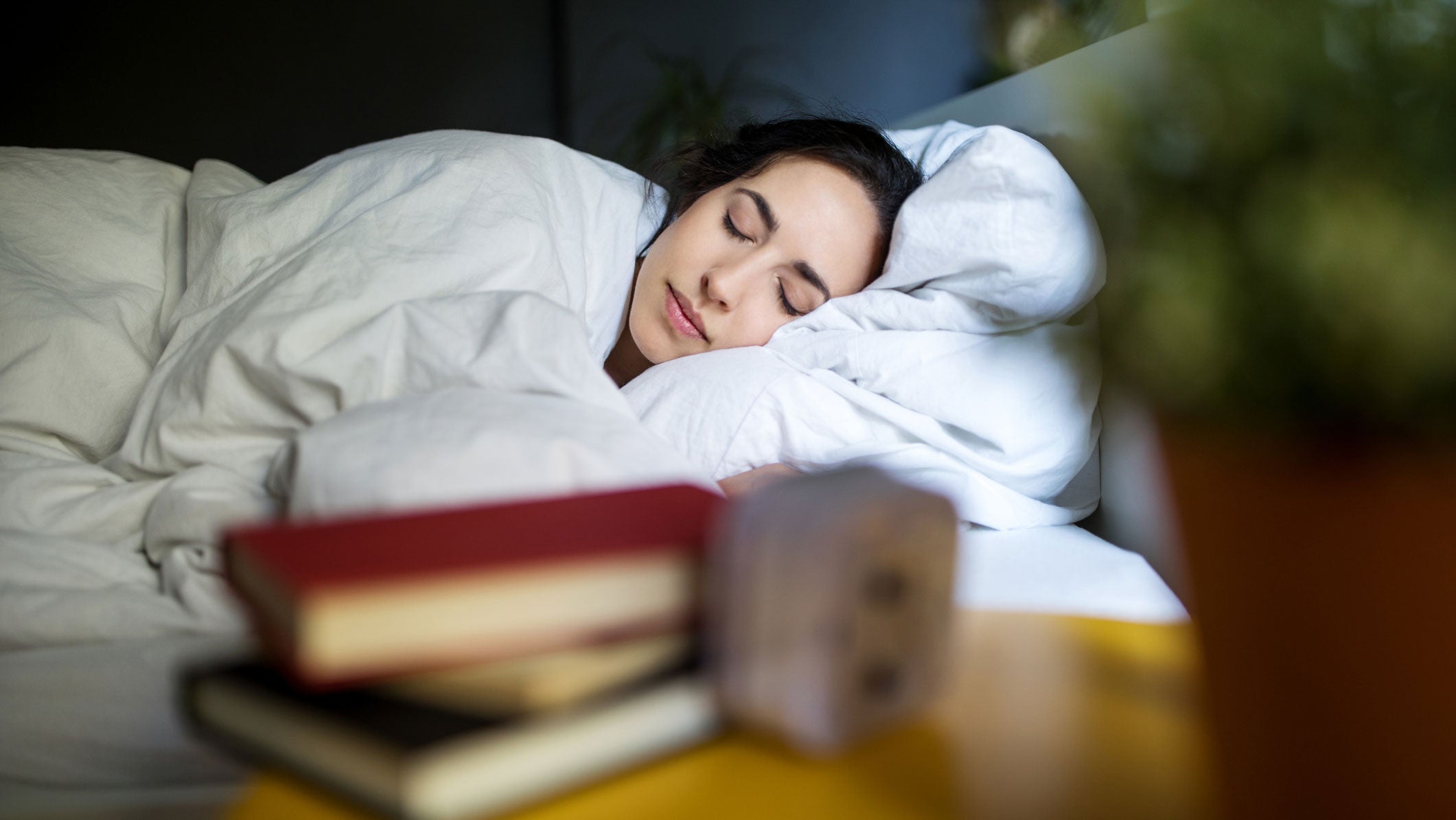Ask Stacy: How Does Sleep Affect Appetite?

We all know how important sleep is for training, recovery, and performance, but the relationship between sleep and appetite is also an interesting one. So, how does sleep affect appetite? It is well known that a lack of sleep is linked to overeating, especially the overconsumption of junk food. Researchers at UC Berkeley investigated the effects of sleep deprivation on brain functions related to food choices. Using MRI scans, scientists observed the neurological activity of sleep-deprived and well-rested people as they viewed pictures of a range of healthy and unhealthy foods.
The scans revealed that the reward center of the brain responded more strongly to images of high-calorie foods among the sleep-deprived group compared to the well-rested group. The MRI scans also showed that sleep deprivation decreased activity in the area of the brain that regulates behavior control. This study suggests that insufficient sleep has a two-fold effect on eating: not sleeping enough makes us more inclined to eat poorly, and at the same time less able to exert control over our impulses to eat those not-so-good-for-us foods.
This comes down to a few factors, all of which are interconnected. Firstly, the two hormones that regulate hunger—ghrelin (which stimulates appetite) and leptin (which mutes appetite)—are affected by sleep. When there is a lack of sleep, the levels of ghrelin spike, with a correlative drop in leptin, leading to an increase in hunger. Also, with low sleep, the blood levels of endocannabinoid (a type of neurotransmitter) rise. The endocannabinoid acts on the brain in a similar way to marijuana, effectively causing the “munchies,” making the act of eating, especially junk food, more enjoyable.
This helps to explain why one of the first steps in weight management is to get into healthy sleep habits, aiming for seven to nine hours per night. And from an athletic perspective, without good sleep you’ll always struggle to reap the benefits from your training—and your recovery will always be compromised. Getting into a good sleep routine is a key part of achieving this and much has been written about the best ways to do this, including staying away from blue light (TV, cell phones, laptops, etc.) for at least an hour before bedtime; regulating temperature in your bedroom (cooler is better); minimizing alcohol consumption close to bedtime and dimming the lights around your house as you get ready for bed.
Though you’re obviously unaware of what goes on while you’re asleep, your brain and body are in an active state. Each stage of sleep has distinct restorative qualities, and how you move through each phase plays a large role in your body’s status the ensuing day. During an ideal night’s sleep, you go through several 90-minute cycles that sample each phase of sleep: wake, light sleep, deep sleep, REM, repeat. Each cycle plays an essential role in maintaining your mental and physical health. The amount of each phase of sleep can vary significantly between nights and individuals.
RELATED:
What Foods Will Help You Sleep?
Sleep Your Way to a New Triathlon PR
Dear Coach: How Can I Improve My Sleep?
Is Your Sleep Position Contributing To Your Injuries?
How to Take a Better Nap